Ditapis dengan

E-book Hyperion or the Hermit in Greece
The beloved soil of my fatherland gives me joy and grief once more.I’m up now every morning on the heights of the Isthmus of Corinth, and often, like the bee from flower to flower, my spirit flits back and forth between the seas to right and left that cool the feet of my glowing mountains.One of those two gulfs would specially have delighted me, had I stood here some…
- Edisi
- -
- ISBN/ISSN
- 9781783746576
- Deskripsi Fisik
- 237 hlm
- Judul Seri
- -
- No. Panggil
- 920 GAS h
E-book William Moorcroft, Potter : Individuality by Design
William Moorcroft (1872-1945) was one of the most celebrated potters of the early twentieth century. His career extended from the Arts and Crafts movement of the late Victorian age to the Austerity aesthetics of the Second World War. Rejecting mass production and patronised by Royalty, Moorcroft’s work was a synthesis of studio and factory, art and industry. He considered it his vocation to c…
- Edisi
- -
- ISBN/ISSN
- 9781805110552
- Deskripsi Fisik
- 414 hlm
- Judul Seri
- -
- No. Panggil
- 738 MAL w
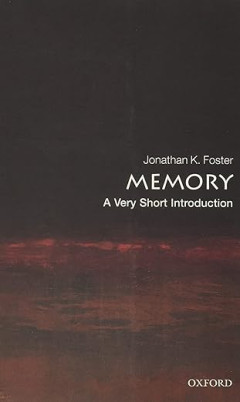
E-book Memory: A Very Short Introduction
Memories are an integral part of being human. They haunt us, we cherish them, and in our lives we collect more of them with each new experience. Without memory, you would not be able to maintain a relationship, drive your car, talk to your children, read a poem, watch television, or do much of anything at all. Memory: A Very Short Introduction explores the fascinating intricacies of human memor…
- Edisi
- -
- ISBN/ISSN
- 9780192806758
- Deskripsi Fisik
- 148 halaman
- Judul Seri
- -
- No. Panggil
- 612.8 FOS m

E-book Eyewitness Travel: Estonia, Latvia and Lithuania
Visit and explore Estonia, Latvia, and Lithuania during your trip to the Baltic States. From top restaurants, bars, and clubs to standout scenic sites and walks, our insider tips are sure to make your trip outstanding. Whether you're looking for unique and interesting shops and markets, or seeking the best venues for music and nightlife, we have entertainment and hotel recommendations for ever…
- Edisi
- -
- ISBN/ISSN
- 9781465460332
- Deskripsi Fisik
- 418 halaman, ilus.
- Judul Seri
- -
- No. Panggil
- 910 JAR e
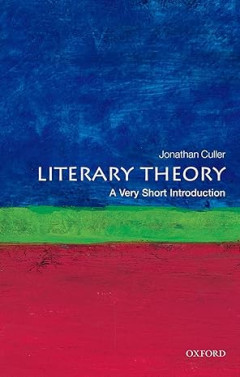
E-book Literary Theory: A Very Short Introduction
What is literary theory? Is there a relationship between literature and culture? These are some of questions addressed by Jonathan Culler in this new edition of his highly popular Very Short Introduction. Culler, an extremely lucid commentator and much admired in the field of literary theory, uses easy-to-grasp examples as he outlines the ideas behind schools of criticism that can otherwise be …
- Edisi
- -
- ISBN/ISSN
- 9780199691340
- Deskripsi Fisik
- 22 halaman, ilus.
- Judul Seri
- -
- No. Panggil
- 001.01 CUL l
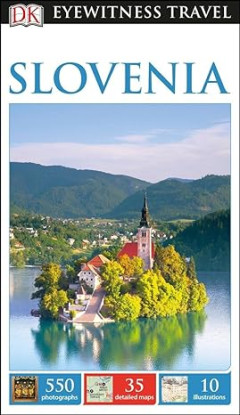
E-book Eyewitness Travel: Slovenia
Your in-depth guide to the very best of Slovenia. Make the most of your trip to this beautiful destination with our DK Eyewitness Travel Guide. Packed with insider tips to make your trip a success, you'll find a guide to Slovenia's stunning architecture and its scenic drives that lets you experience the best hotels, bars, and shops that the country has to offer. Try local delicacies at fanta…
- Edisi
- -
- ISBN/ISSN
- 9781465460288
- Deskripsi Fisik
- 254 halaman, ilus.
- Judul Seri
- -
- No. Panggil
- 910 BOU e
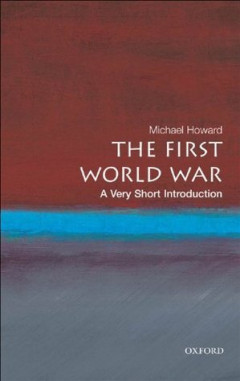
E-book The First World War: A Very Short Introduction
By the time the First World War ended in 1918, eight million people had died in what had been perhaps the most apocalyptic episode the world had known. This Very Short Introduction provides a concise and insightful history of the 'Great War', focusing on why it happened, how it was fought, and why it had the consequences it did.It examines the state of Europe in 1914 and the outbreak of war; th…
- Edisi
- -
- ISBN/ISSN
- 9780199205592
- Deskripsi Fisik
- 161 halaman
- Judul Seri
- -
- No. Panggil
- 940.3 HOW t 002851-eB-0122
E-book Clausewitz: A Very Short Introduction
Karl von Clausewitz (1780-1831) is considered by many to have been one of the greatest writers on war. His study On War was described by the American strategic thinker Bernard Brodie as "not simply the greatest, but the only great book about war". It is hard to disagree. Even though he wrote his only major work at a time when the range of firearms was 50 yards, much of what he had to say remain…
- Edisi
- -
- ISBN/ISSN
- 0192802577
- Deskripsi Fisik
- 96 halaman
- Judul Seri
- -
- No. Panggil
- 920.71 HOW c

E-book Genes: A Very Short Introduction
In this exploration of the concept of the gene, Jonathan Slack looks at the discovery, nature, and role of genes in both evolution and development. By explaining the nature of genetic variation in the human population, how hereditary factors were identified as molecules of DNA, and how certain specific mutations can lead to disease, Slack highlights how DNA variants are used to trace human ance…
- Edisi
- -
- ISBN/ISSN
- 9780191664182
- Deskripsi Fisik
- 254 halaman
- Judul Seri
- -
- No. Panggil
- 576 SLA g
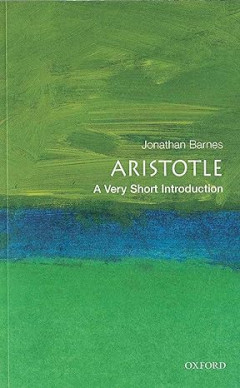
E-book Aristotle: A Very Short Introduction
The influence of Aristotle, the prince of philosophers, on the intellectual history of the West is second to none. In this book, Jonathan Barnes examines Aristotle's scientific researches, his discoveries in logic and his metaphysical theories, his work in psychology and in ethics and politics, and his ideas about art and poetry, placing his teachings in their historical context.
- Edisi
- -
- ISBN/ISSN
- 0192854089
- Deskripsi Fisik
- 177 halaman
- Judul Seri
- -
- No. Panggil
- 185 BAR a 002825-eB-0122
E-book Florida Avocado Varieties
This e-book contains many varieties of Florida avocado.
- Edisi
- -
- ISBN/ISSN
- -
- Deskripsi Fisik
- 47 hlml
- Judul Seri
- -
- No. Panggil
- 634.6 BAL f
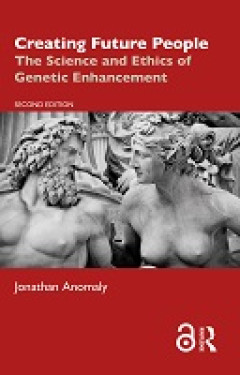
E-book Creating Future People: The Science and Ethics of Genetic Enhancement …
Creating Future People offers readers a fast-paced primer on how advances in genetics will enable parents to influence the traits of their children, including their children’s intelligence, moral capacities, physical appearance, and immune system. It explains the science of gene editing and embryo selection and motivates the moral questions it raises by thinking about the strategic aspects of…
- Edisi
- -
- ISBN/ISSN
- 9781040008553
- Deskripsi Fisik
- 175 halaman
- Judul Seri
- -
- No. Panggil
- 301 ANO c
E-book Capability Brown, Royal Gardener : The Business of Place-Making in Nor…
Yet Brown’s family lived in Kirkhale, in Northumberland, a fairly typical small rural community, over 300 miles to the north, far from the glittering metropolitan world. His father, who died in 1720 when Brown was only four, was a farmer and land agent to the local lord, Sir William Loraine, yet the young Brown was educated at the local school in Cambo – possibly through the good offices of…
- Edisi
- -
- ISBN/ISSN
- 9781912482252
- Deskripsi Fisik
- 241 hlm
- Judul Seri
- -
- No. Panggil
- 712.5 BOT c

E-Book City of Equals
When we think about equality in the city, we are very likely to think first of the wide and growing divide between rich and poor, in material terms. Yet when we think more about a 'city of equals' it becomes apparent that how people feel treated by the city and those around them, and whether they can live according to their values, are much more central. Accordingly, combining their own reflect…
- Edisi
- -
- ISBN/ISSN
- 9780198894735
- Deskripsi Fisik
- 225 halaman
- Judul Seri
- -
- No. Panggil
- 320 WOL c
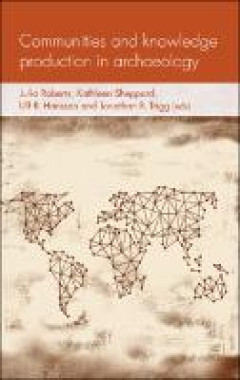
E-Book Communities and Knowledge Production in Archaeology
The dynamic processes of knowledge production in archaeology and elsewhere in the humanities and social sciences are increasingly viewed as the collaborative effort of groups, clusters and communities of researchers rather than the isolated work of so-called ‘instrumental’ actors. Shifting focus from the individual scholar to the wider social contexts of her work and the dynamic creative pr…
- Edisi
- -
- ISBN/ISSN
- 9781526134561
- Deskripsi Fisik
- 269 halaman
- Judul Seri
- -
- No. Panggil
- 930.1 ROB c
E-book Butterflies : Taking Science to the Backyard
Papilionidae, Pieridae, Lycaenidae, and Nymphalidae. Close to 750 species inhabit the United States and Canada, most notably the Monarch and Regal Fritillary can be found in Nebraska. Approximately 3% of butterfly species are threatened with extinction. This decline in butterfly populations is attributed primarily to habitat loss due to urbanization and agriculture. As populations continue to d…
- Edisi
- -
- ISBN/ISSN
- -
- Deskripsi Fisik
- 78 hlm
- Judul Seri
- -
- No. Panggil
- 595.7 MUL b
E-book A Companion to The Roman Empire
Fifteen years ago, historians of the Roman world were in the process of dismantling the hierarchical structure of their subject that had endured since the beginning of scholarly discourse about the Roman Empire. In the late sixties and early seventies, scholars began to move away from work concentrating on the dominant social and political group that had produced the bulk of the surviving liter…
- Edisi
- -
- ISBN/ISSN
- 9780631226444
- Deskripsi Fisik
- 715 hlm
- Judul Seri
- -
- No. Panggil
- 937 POT a
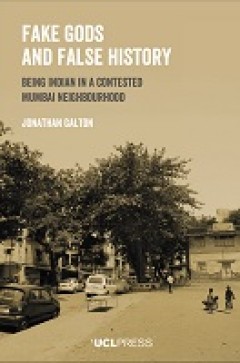
E-Book Fake Gods and False History: Being Indian in a Contested Mumbai Neighb…
n an age where history is a global battleground and fake news proliferates, culture wars are being waged across India over its future – majoritarian or inclusive, neoliberal or socialist, religious or secular? Fake Gods and False History takes us to the BDD Chawls, a central Mumbai neighbourhood of tenement blocks (chawls) on the brink of a controversial redevelopment. Throughout the book, …
- Edisi
- -
- ISBN/ISSN
- 9781800085800
- Deskripsi Fisik
- 237 halaman
- Judul Seri
- -
- No. Panggil
- 305.8 GAL f
E-book The Currency of Empire : Money and Power in Seventeenth-Century Englis…
his book examines the pivotal role that silver and gold money played in the formation and working out of England’s Amer-ican colonial proj ect in the seventeenth century. The book argues, first, that money was the primum mobile, or prime mover, of En glish imperial action and overseas activity, including the impulse for colonization, the regulation of colonial trade, and the introduction…
- Edisi
- -
- ISBN/ISSN
- 9781501755781
- Deskripsi Fisik
- 396 hlm
- Judul Seri
- -
- No. Panggil
- 970.03 BAR t
E-book Trickbox of Memory : Essays on Power and Disorderly Pasts
"Reach into this trickbox of memory and rummage around: you may find a tiny spaceship, or perhaps a signpost, a parade, a raised fist, an entire museum. The essays in Trickbox of Memory: Essays on Power and Disorderly Pasts draw on literary criticism, post-qualitative inquiry, new materialism, and political activism to dismember and reanimate the field of memory studies. In the trickbox, concep…
- Edisi
- -
- ISBN/ISSN
- 9781953035257
- Deskripsi Fisik
- 181 hlm
- Judul Seri
- -
- No. Panggil
- 153.12 GRU
E-book The World as Abyss : The Caribbean and Critical Thought in the Anthrop…
In 1939 Martinican writer Aimé Césaire first published his book length poem variously translated as Notebook of a Return to My Native Land, Return to My Native Land, or Journal of a Homecom-ing, in which this epigraph appears. As the colonial powers were taking the world into an era of mass destruction, Césaire drew upon a Caribbean imaginary to counterpose to th…
- Edisi
- -
- ISBN/ISSN
- 9781915445315
- Deskripsi Fisik
- 123 hlm
- Judul Seri
- -
- No. Panggil
- 301 PUG t
E-book The Princeton Guide to Evolution
For more than 150 years, since the publication of On the Origin of Species, biologists have focused on understanding the evolutionary chronicle of diversification and extinction, and the underlying evolutionary processes that have produced it. Although progress in evolutionary biology has been steady since Darwin’s time, developments in the last 20 years have ushered in a golden era of evolut…
- Edisi
- -
- ISBN/ISSN
- 9780691149776
- Deskripsi Fisik
- 877 hlm
- Judul Seri
- -
- No. Panggil
- 576.8 AGR t
E-book The Future of Skills Employment in 2030
Governing is the art of planning and predicting. Developing a picture of long-term jobs and skills requirements is critical for policymakers as they navigate rapid, complex and uncertain shifts in the economy and society. A wide range of areas – from curriculum development and careers guidance through apprenticeships and workplace training to occupational standards, migration and social insur…
- Edisi
- -
- ISBN/ISSN
- -
- Deskripsi Fisik
- 124 hlm
- Judul Seri
- -
- No. Panggil
- 305.9 BAK t
E-book The Data Journalism Handbook : Towards a Critical Data Practice
On the other hand, data journalism has become more contested. The 2013 Snowden leaks helped to publicly confirm a transnational surveillance apparatus of states and technology companies as a matter of fact rather than speculation. These leaks suggested how citizens were made knowable through big data practices, showing a darker side to familiar data-making devices, apps and platforms (Gray & Bo…
- Edisi
- -
- ISBN/ISSN
- 9789048542079
- Deskripsi Fisik
- 420 hlm
- Judul Seri
- -
- No. Panggil
- 070.4 BOU t

Elementary linear algebra : Applications version
This textbook contains eleven contens like systems of linear equations and matrices, determinants, vectors in two space and three space, vector spaces, inner product spaces, eigenvalues, linear transformations, apllications, introduction to numerical methods of linear algebra, complex vector spaces, and applications of linear algebra
- Edisi
- -
- ISBN/ISSN
- -
- Deskripsi Fisik
- xv + 718 hal; 20 x 26 cm
- Judul Seri
- -
- No. Panggil
- 512.5 ANT e
E-book Twilight land
I found myself in Twilight Land. How I ever got there I cannot tell, but there I was in Twilight Land. What is Twilight Land? It is a wonderful, wonderful place where no sun shines to scorch your back as you jog along the way, where no rain falls to make the road muddy and hard to travel, where no wind blows the dust into your eyes or the chill into your marrow. Where all is sweet and qui…
- Edisi
- -
- ISBN/ISSN
- -
- Deskripsi Fisik
- 323 hlm; 0.5 mb
- Judul Seri
- -
- No. Panggil
- 823 PYL t
E-book The merry adventures of robin hood
The shaft flew straight; the archer fell forward with a cry, and lay on his face upon the ground, his arrows rattling about him from out of his quiver, the gray goose shaft wet with his; heart’s blood. Then, before the others could gather their wits about them, Robin Hood was gone into the depths of the greenwood. Some started after him, but not with much heart, for each feared to suffer the …
- Edisi
- -
- ISBN/ISSN
- -
- Deskripsi Fisik
- 395 hlm
- Judul Seri
- -
- No. Panggil
- 823 PYL t
E-book Gulliver's travels
My father had a small estate in Nottinghamshire: I was the third of five sons. He sent me to Emanuel College in Cambridge at fourteen years old, where I resided three years, and applied myself close to my studies; but the charge of maintaining me, although I had a very scanty allowance, being too great for a narrow fortune, I was bound apprentice to Mr. James Bates, an eminent surgeon in London…
- Edisi
- -
- ISBN/ISSN
- -
- Deskripsi Fisik
- 383 hlm
- Judul Seri
- -
- No. Panggil
- 823 SWI t

Olahraga sumber kesehatan
- Edisi
- -
- ISBN/ISSN
- 9795040405
- Deskripsi Fisik
- 304 hlm; 18.5 cm x 23 cm
- Judul Seri
- -
- No. Panggil
- 613.7 KUN o
- Edisi
- -
- ISBN/ISSN
- 9795040405
- Deskripsi Fisik
- 304 hlm; 18.5 cm x 23 cm
- Judul Seri
- -
- No. Panggil
- 613.7 KUN o
Sejarah dunia yang disembunyikan.
Banyak orang mengatakan bahwa sejarah ditulis oleh para pemenang. Hal ini sama sekali tak mengejutkan alias wajar belaka, Tetapi bagaimana jika sejarah--atau apa yang kita ketahui sebagai sejarah-- ditulis oleh orang yang salah? Bagaimana jika semua yang telah kita ketahui hanyalah bagian dari cerita yang salah tersebut? Dalam buku kontroversial yang sangat tersohor in, Jonathan Black mengupa…
- Edisi
- Cetakan 15
- ISBN/ISSN
- 9786029193671
- Deskripsi Fisik
- x+620 halaman :illus ;23 cm
- Judul Seri
- -
- No. Panggil
- 909 BLA s

Clausewitz : Mahaguru strategi perang modern
- Edisi
- cet. 1
- ISBN/ISSN
- 979-444-145-7
- Deskripsi Fisik
- vi; 125 hlm; ind;;13 x 19 cm
- Judul Seri
- -
- No. Panggil
- 355.4 HOW c
- Edisi
- cet. 1
- ISBN/ISSN
- 979-444-145-7
- Deskripsi Fisik
- vi; 125 hlm; ind;;13 x 19 cm
- Judul Seri
- -
- No. Panggil
- 355.4 HOW c

BERPIKIR SEPERTI JUTAWAN DAN MENJADI KAYA
- Edisi
- cet. 1
- ISBN/ISSN
- -
- Deskripsi Fisik
- 187 hlm;;14.5 x 21 cm
- Judul Seri
- -
- No. Panggil
- 158 HIL b
- Edisi
- cet. 1
- ISBN/ISSN
- -
- Deskripsi Fisik
- 187 hlm;;14.5 x 21 cm
- Judul Seri
- -
- No. Panggil
- 158 HIL b

A Brief History of China Dinasty, Revolution, and Transformation: From The Mi…
Explores "the development of a rich and complex civilization where the use of paper, writing, money, and gunpowder were widespread in ancient times and where silk, ceramics, tea, metal implements, and other products were produced and exported around the globe. [The book] examines the special conditions that allowed a single culture to unify an entire continent spanning 10 billion square kilomet…
- Edisi
- Cet.1
- ISBN/ISSN
- 97808040850056
- Deskripsi Fisik
- 320 hlm.; illus. 13x20cm
- Judul Seri
- -
- No. Panggil
- 951 CLE a
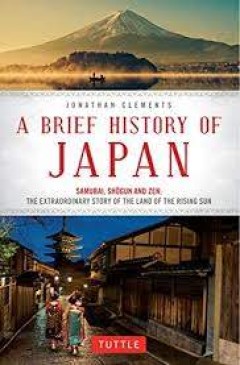
A brief history of Japan samurai, shōgun and zen : the extraordinary story …
This fascinating history tells the story of the people of Japan, from ancient teenage priest-queens to teeming hordes of salarymen, a nation that once sought to conquer China, yet also shut itself away for two centuries in self-imposed seclusion
- Edisi
- Cet. 1
- ISBN/ISSN
- 9784805313893
- Deskripsi Fisik
- 288 hlm.; illus. 13,5x20,5cm
- Judul Seri
- -
- No. Panggil
- 952 CLE a

Grolier concise encyclopedia of science and technology vol. 1
The most widely used science reference of its kind in print, the third edition of this invaluable resource reinforces its position as the most complete, concise, and easy-to-use single volume scientific and technical encyclopedia on the market today. Now thoroughly revised and updated to include the latest research and findings in every major area of science and engineering-from acoustics to zo…
- Edisi
- 1th edition
- ISBN/ISSN
- 0717285251
- Deskripsi Fisik
- lxxiv + 274 pgs.; illus. 22 x 28 cm
- Judul Seri
- -
- No. Panggil
- 603 PAR g

Grolier concise encyclopedia of science and technology vol. 2
The most widely used science reference of its kind in print, the third edition of this invaluable resource reinforces its position as the most complete, concise, and easy-to-use single volume scientific and technical encyclopedia on the market today. Now thoroughly revised and updated to include the latest research and findings in every major area of science and engineering-from acoustics to zo…
- Edisi
- 1th edition
- ISBN/ISSN
- 0717285251
- Deskripsi Fisik
- 276-703 pgs.; illus. 22 x 28 cm
- Judul Seri
- -
- No. Panggil
- 603 PAR g

Grolier concise encyclopedia of science and technology vol. 3
The most widely used science reference of its kind in print, the third edition of this invaluable resource reinforces its position as the most complete, concise, and easy-to-use single volume scientific and technical encyclopedia on the market today. Now thoroughly revised and updated to include the latest research and findings in every major area of science and engineering-from acoustics to zo…
- Edisi
- 1th edition
- ISBN/ISSN
- 0717285251
- Deskripsi Fisik
- 706- 1011 pgs.; illus. 22 x 28 cm
- Judul Seri
- -
- No. Panggil
- 603 PAR g

Grolier concise encyclopedia of science and technology vol. 4
The most widely used science reference of its kind in print, the third edition of this invaluable resource reinforces its position as the most complete, concise, and easy-to-use single volume scientific and technical encyclopedia on the market today. Now thoroughly revised and updated to include the latest research and findings in every major area of science and engineering-from acoustics to zo…
- Edisi
- 1th edition
- ISBN/ISSN
- 0717285251
- Deskripsi Fisik
- 1014-1423 pgs.; illus. 22 x 28 cm
- Judul Seri
- -
- No. Panggil
- 603 PAR g

Grolier concise encyclopedia of science and technology vol. 6
The most widely used science reference of its kind in print, the third edition of this invaluable resource reinforces its position as the most complete, concise, and easy-to-use single volume scientific and technical encyclopedia on the market today. Now thoroughly revised and updated to include the latest research and findings in every major area of science and engineering-from acoustics to zo…
- Edisi
- 1th edition
- ISBN/ISSN
- 0717285251
- Deskripsi Fisik
- 1715-2065 pgs.; illus. 22 x 28 cm
- Judul Seri
- -
- No. Panggil
- 603 PAR g

Ensiklopedia Glorier - Ilmu pengetahuan populer 2: Astronomi dan pengetahuan …
ASTRONOMI DAN ILMU PENGETAHUAN RUANG ANGKASA ( Halaman 1-47) KOMPUTER DAN MATEMATIKA ( Halaman 48-201) Dalam bagian ini kita mempelajari cara membuat program komputer dan cara penggunaannya. Bidang penting tentang matematika: berhitung, aljabar, planimetri dan geometri ruang, trigonometri, geometri, analitik, dan kalkulus. Beberapa penerapan matematika dalam statistika, probabilitas, dan te…
- Edisi
- cet. 2
- ISBN/ISSN
- -
- Deskripsi Fisik
- 295 hlm.; illus. 21 x 27 cm
- Judul Seri
- -
- No. Panggil
- 503 BRA e

Ensiklopedia Grolier - Ilmu pengetahuan populer 9 : Ilmu pengetahuan manusia,…
ILMU PENGETAHUAN MANUSIA ( Halaman 1-96) TEKNOLOGI ( Halaman 98-927) Bagian teknologi dimulai dengan bagian penting dan fungsi rekayasa modern, survei penerapan tertua ilmu pengetahuan yakni teknologi awal membangun rumah, dan bangunan lainnya, sampai transportasi; mobil, kereta api, pesawat terbang, dan sarana perjalanan lainnya. Penerapan lanjutan ilmu pengetahuan tentang industri kimia d…
- Edisi
- cet. 2
- ISBN/ISSN
- -
- Deskripsi Fisik
- 297 hlm.; illus. 21 x 27 cm
- Judul Seri
- -
- No. Panggil
- 503 LAI e
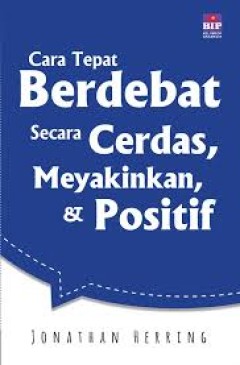
Cara berdebat secara cerdas, meyakinkan, & Positif
Kemampuan untuk membujuk, mempengaruhi, dan meyakinkan orang lain sangat penting untuk meraih kesuksesan dalam hidup maupun dunia kerja. Bagaiamanapun, banyak orang kurang memahami cara berdebat yang tepat. Malahan, perderbatan masih dipandang sebagai sesuatu yang perlu dihindari karena sifatnya yang buruk. Padahal, kemampuan berdebat adalah salah satu aset diri yang paling berharga, meskipun …
- Edisi
- cet. 7
- ISBN/ISSN
- 9786023944446
- Deskripsi Fisik
- ix + 256 hlm. 15 x 23 cm
- Judul Seri
- -
- No. Panggil
- 808.530 23 HER c
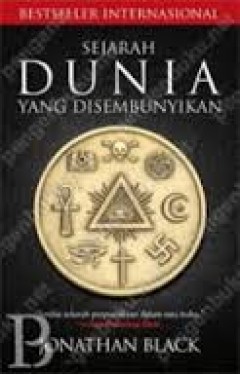
Sejarah dunia yang disembunyikan = The secret history of the world
Banyak orang mengatakan bahwa sejarah ditulis oleh para pemenang. Hal ini sama sekali tak mengejutkan alias wajar belaka. Tetapi, bagaimana jika sejarah—atau apa yang kita ketahui sebagai sejarah—ditulis oleh orang yang salah? Bagaimana jika semua yang telah kita ketahui hanyalah bagian dari cerita yang salah tersebut? Dalam buku kontroversial yang sangat tersohor ini, Jonathan Black mengu…
- Edisi
- cet. 3
- ISBN/ISSN
- 978-602-9193-67
- Deskripsi Fisik
- x + 620 hlm.; illus. 15,5 cm x 23 cm
- Judul Seri
- -
- No. Panggil
- 909 BLA s

DARWIN: Pencetus Teori Evolusi
- Edisi
- -
- ISBN/ISSN
- 979-444-109-0
- Deskripsi Fisik
- x, 150 hlm.;13 x 19 cm
- Judul Seri
- -
- No. Panggil
- 925 HOW d
- Edisi
- -
- ISBN/ISSN
- 979-444-109-0
- Deskripsi Fisik
- x, 150 hlm.;13 x 19 cm
- Judul Seri
- -
- No. Panggil
- 925 HOW d

CLAUSEWITZ: Mahaguru Strategi Perang Modern
- Edisi
- cet. 1
- ISBN/ISSN
- 979-444-145-7 m
- Deskripsi Fisik
- vii; 125 hlm;13 x 19 cm
- Judul Seri
- -
- No. Panggil
- 923.5 HOW c
- Edisi
- cet. 1
- ISBN/ISSN
- 979-444-145-7 m
- Deskripsi Fisik
- vii; 125 hlm;13 x 19 cm
- Judul Seri
- -
- No. Panggil
- 923.5 HOW c

AIR MATA SANG PEMBERONTAK
- Edisi
- cet. 1
- ISBN/ISSN
- 978-979-22-2967
- Deskripsi Fisik
- 397 hlm;11 x 18 cm
- Judul Seri
- -
- No. Panggil
- 823 HOW a
- Edisi
- cet. 1
- ISBN/ISSN
- 978-979-22-2967
- Deskripsi Fisik
- 397 hlm;11 x 18 cm
- Judul Seri
- -
- No. Panggil
- 823 HOW a

AMULET SAMARKAND
- Edisi
- cet. 4
- ISBN/ISSN
- 978-979-22-2641
- Deskripsi Fisik
- 512 hlm;13,5 x 20 cm
- Judul Seri
- -
- No. Panggil
- 823 STR a
- Edisi
- cet. 4
- ISBN/ISSN
- 978-979-22-2641
- Deskripsi Fisik
- 512 hlm;13,5 x 20 cm
- Judul Seri
- -
- No. Panggil
- 823 STR a

MATA GOLEM
- Edisi
- -
- ISBN/ISSN
- -
- Deskripsi Fisik
- ;13,5 X 20 CM
- Judul Seri
- -
- No. Panggil
- 823 STR m
- Edisi
- -
- ISBN/ISSN
- -
- Deskripsi Fisik
- ;13,5 X 20 CM
- Judul Seri
- -
- No. Panggil
- 823 STR m

GERBANG PTOLEMY
- Edisi
- cet. 1
- ISBN/ISSN
- 978-979-22-2964
- Deskripsi Fisik
- 576 hlm;13,5 x 20 cm
- Judul Seri
- -
- No. Panggil
- 823 STR g
- Edisi
- cet. 1
- ISBN/ISSN
- 978-979-22-2964
- Deskripsi Fisik
- 576 hlm;13,5 x 20 cm
- Judul Seri
- -
- No. Panggil
- 823 STR g

 Karya Umum
Karya Umum  Filsafat
Filsafat  Agama
Agama  Ilmu-ilmu Sosial
Ilmu-ilmu Sosial  Bahasa
Bahasa  Ilmu-ilmu Murni
Ilmu-ilmu Murni  Ilmu-ilmu Terapan
Ilmu-ilmu Terapan  Kesenian, Hiburan, dan Olahraga
Kesenian, Hiburan, dan Olahraga  Kesusastraan
Kesusastraan  Geografi dan Sejarah
Geografi dan Sejarah